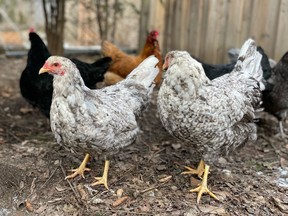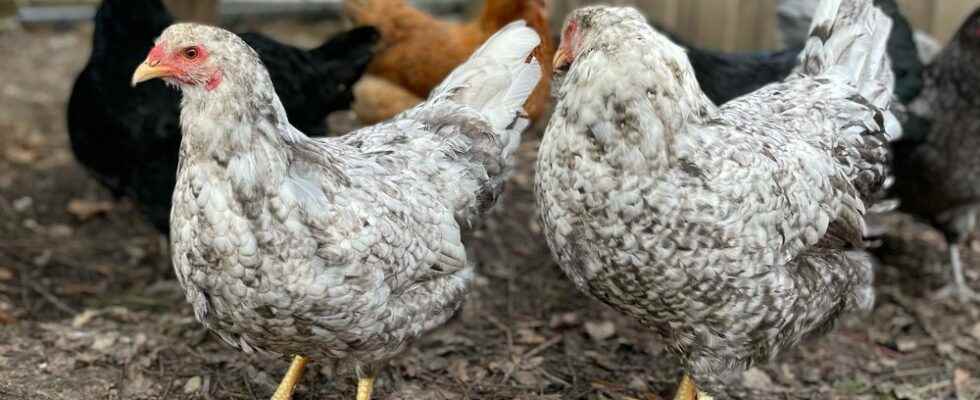
Tillsonburg’s Andrew Tucker wants to be able to raise backyard chickens.
And Councilor Chris Rosehart agrees with him.
“I think all kids and all families should learn where chickens come from – it doesn’t come from store shelves,” said Rosehart.
“I see nothing wrong with having at least four chickens. We already have some that are grandfathered, and I don’t know if bylaw (enforcement) has been called to any of those places. I’ve never heard a complaint about them at all.”
Tucker, who made a pitch to councilors at Tillsonburg’s Jan. 24 council meeting, said several Ontario municipalities allow backyard chickens, with bylaws in place, including Brampton, Guelph, Kingston, Niagara Falls, and Norfolk County.
Tucker cited food sustainability and the higher-nutrient quality of backyard chickens.
“And it’s a good educational tool,” said Tucker. “I think this is another thing that can be used to educate children and show them some of the ways that food is produced.
“Chicken waste is compostable. At my home they would produce zero waste because the waste would go back into the compost and go back into my garden, and grow vegetables.”
Tucker said he would prefer a bylaw similar to Norfolk’s – up to four hens and no rooster – rather than Brantford’s – up to 10 hens and one rooster.
In Norfolk, hens must be at least four months old when introduced to coops; feed must be kept in secure containers; no in-town slaughtering; no curbside sales; manure must be disposed in a responsible fashion; and chicken coops, enclosed on the top, bottom and four sides to deter predators, must be at designated distances away from property lines.
Opposition to backyard chickens generally centers around noise, odour, the potential of avian flu, and predators, he said.
Councilor Chris Parker acknowledged the importance of food sustainability, but said he was concerned about predators.
“With the amount of fields, and the deforestation that we’ve done in the area, coyotes are more prevalent in town, and I think that might be one of the issues moving forward,” said Parker. “Bringing chickens into the backyard may actually attract more.”
“As a former bylaw officer in a community that did have backyard chickens, it was a lot of trouble,” said Councilor Bob Parsons. “A lot of upset neighbours, a lot of noise, a lot of smell, and a lot of predators. And a lot of enforcement.
“I think it can be done in rural settings where houses are not close together, but in an urban centre, I think it’s going to be very difficult,” Parsons added.
“This isn’t the first time this has come here (to council),” said Deputy Mayor Dave Beres, recalling delegations and people in the audience who were opposed to living next door to someone with backyard chickens, noise, odor and predators. “I don’t think that’s changed.
“I believe the argument at that time was ‘we’d like to have fresh eggs’ but we are in an area where, within a five-minute drive, there are signs around town where people can go get fresh eggs from farmers.”
Council voted to instruct staff to report back with recommendations, using municipalities with existing bylaws in place as examples to determine the effectiveness and/or adversities of implementing a backyard chicken bylaw, and whether there have been complaints about existing backyard hens that were grandfathered in.
Councilor Kelly Spencer, who said Norfolk’s bylaw is very comprehensive, wondered if some of the concerns are ‘possibility versus probability.’
“I think there is some validity to explore, or re-explore this from a different angle,” said Spencer. “Maybe public opinion has changed.”
